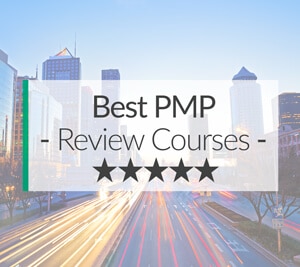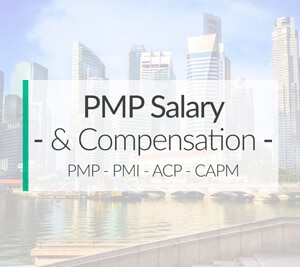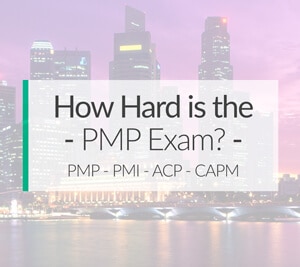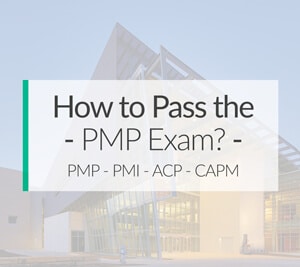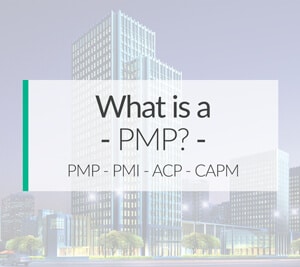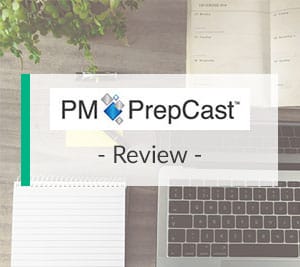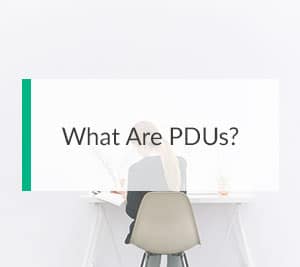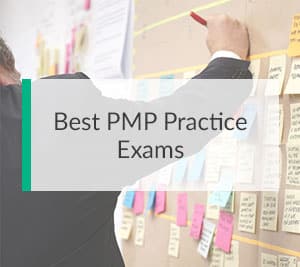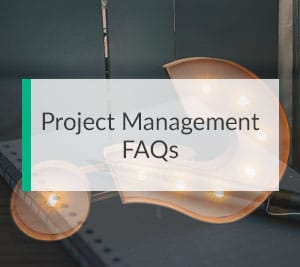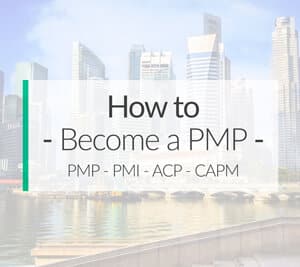
Becoming a PMP (Project Management Professional) is an awesome way to take your PM career to the next level. You’ll be able to take on more responsibility at higher company levels with this certification. You will also most likely get a nice salary boost from your new credential.
Professional project managers can work in an amazingly high number of different industries and work environments. Consider that, according to PMI’s definition, a project is “a temporary endeavor undertaken to create a unique product, service or result.” Because of this, we immediately understand how widespread project management work is. From a fashion magazine to a nuclear plant, certified project managers have a huge amount of job opportunities.
Whether employed inside an organization or as a freelancer, the nature of the project management experience is extremely various. However, they will all substantially be related to managing projects along their Life Cycle. This will also involve leading teams, ensuring that the objectives are met inside the constraints and making punctual reports.
But what about the salary? Well, according to the PMI’s Project Management Salary Survey Ninth Edition, a PMP’s salary is on average 20% higher than the one of a non-PMP. Also, when working inside an organization, the project manager’s career is likely to be growing during this time. This is thanks to the increased responsibility of their position and the exposure to the board of directors. Ultimately, all of these factors and more are typically gained by managing projects.
Needless to say, there are a ton of different reasons to obtain project management certification. Therefore, let’s take a look at a list of steps on how to become a PMP certified professional!
How Do You Become a PMP?
Steps to Becoming a Project Management Professional
Fulfill the Project Management Education and Work Experience Requirements
Before you can become a PMP, you have to complete all of the education and work experience requirements. The PMI gives you two different options depending on your educational background and level of education.
Here are the different educational and work experience requirements:
Candidates with a High School Diploma or Associate’s Degree must complete 7,500 hours of project management education and experience in leading and directing projects.
Alternatively, candidates with a four-year college degree don’t have to complete as much work experience because they have more education. Instead, they only have to complete 4,500 hours of experience in leading and directing projects or the global equivalent.
No matter what education level you have, all PMP candidates must pass a 35-hour project PMP exam prep course given by a PMI recognized provider.
You can find valid PMP Prep courses almost everywhere in the world, with costs that may vary from around $1,000 – $2,000 for a traditional class course to $100 – $500 for a good podcast course.
Get a Project Management Training Course
Not only can your PMP prep course count for the 35-hour PM education that you need. It will also help you pass the exam on your first try!
Getting a real review course is an investment in your future. Don’t settle for a podcast or some basic level study guide. It won’t help you that much. Unfortunately, too many candidates think that they can fly by the seat of their pants and get away with it.
Trust me. It doesn’t work. You need a review course that works within your budget and fits your learning style. This will help you study faster, retain more information, and pass the exam on your first try. Furthermore, if you get a course from a registered education provider, you won’t regret it. Instead, you’ll be thinking about how happy you are to be done with the exam because you passed it.
Here’s a list of the top PMP review courses. Check them out and see which one is right for you!
Apply for the PMP Exam
To apply for the exam, you will be asked to report your education and experience by using an online form that is quite detailed. In this phase, I highly recommend that you prepare the information in advance, including the contacts of all your employers, which can be used by the PMI to conduct random verifications.
I also recommend that you describe your experiences in a way that is compliant with the PMI standard: generic descriptions may be refused or need to be reprocessed. This will speed things up and make sure that your application doesn’t get stopped at some point for more information or worse rejected.
After the application has been submitted, the approval email from PMI usually arrives in less than ten days and the next step is paying the fees for the exam.
Become a PMI Member
At this stage, becoming a PMI member is not mandatory, but it is highly recommended and convenient. Being a member has a ton of advantages. One of which is lower exam costs.
Typically, the cost of the PMP exam is:
- $405 for PMI members
- $555 for non-PMI members
Considering that the cost of a standard PMI membership is $129 plus $10 application fee for the first issue (the whole price is instead $32 for students and $65 for retirees), it is clear the convenience of being a PMI member before enrolling to the exam.
In addition, the PMI membership gives access to a huge amount of material including the last release of the PMBOK, many courses and events.
To enroll the PMP exam and to possibly become a PMI member is simple as visiting the www.pmi.org website and following the clearly indicated paths.
An extra cost that may be taken into account is the one of joining a local chapter; this choice is recommended if you wish to network and find opportunities in your Area. You may join a local chapter while enrolling to PMI or later, at the cost of about $30.
Pay PMP Exam Costs and Fees
As I listed above, there are a number of fees and costs associated with taking the PMP exam and becoming a certified Project Management Professional. Here is a list of fees that you will need to pay.
| PMP Exam Fees and License Costs | Fees and Costs – PMI Members | Fees and Costs – Non-Members |
|---|---|---|
| Exam Application Fee: | $405 | $555 |
| PMI Membership Fee: | $139 | $139 |
| PMP Preparation Course Materials | $179 – $2,600 | $179 – $2,600 |
Pass the PMP Exam
After the payment, you will be able to schedule the exam’s date and place. The PMP certification exams take place in one of the Prometric’s worldwide testing sites.
The day of the exam, you will typically sit in a cubicle with nothing but a plain calculator, a blank sheet and a pencil, and you will be continuously monitored.
You will have four hours to answer 200 multiple-choice questions about the main domains of project management.
The pass/fail result will be given immediately after the test is finished, while your certification will be issued some weeks later.
I will not hide it. The exam is not easy: some questions are hard, and many real-life cases are presented, which are often fatiguing to be read in a short time. You will have to know everything about the PMBOK and link this knowledge with your experience of project management to be able to correctly answer all the questions.
If you pass the exam, you will feel for a while like the happiest person in the world. If you do not pass it though, you will have the opportunity to reschedule it more than one time.
Maintaining Your PMP Certification
PMP Continuing Education Requirements
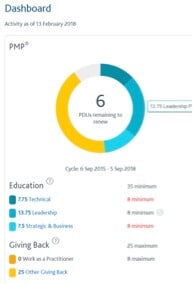
In order to maintain your certification through the time, you will be asked to fulfill the PMI’s Continuous Certification Requirements (CCR), which oblige you to gain at least 60 PDUs every three years. PDUs (Professional Development Units) are a kind of credit that is given to you for specific activities that must be approved by the PMI.
In detail, the 60 PDUs must be composed as follows:
- Minimum 35 PDUs have to come from continuous education (8 minimum must be related to technical skills, 8 to Leadership, 8 to Strategy and business)
- Maximum 25 PDUs have to come from either working as a project manager (8 maximum) or giving back your knowledge by e.g. creating content, giving courses et. al.
Don’t worry if the CCR sounds complicated now: the whole process is so amazingly organized that gaining and reporting PDUs is really easy.
Signing in the PMI website, you will have access to a cool dashboard from which you will be able to monitor your PDUs and claim for new ones. The one in the picture is my own Dashboard, in which you can see that I only miss 6 PDUs to complete my 60.
Cost of maintaining the certification
Apart from the initial expenses, the only costs that you will have to sustain to maintain your PMP status are the ones necessary to gain 60 PDUs every three years.
These costs may be quite variable: in the market, you can find quite expensive courses and events, but also cheap or even free ones. Participating in the PMI’s activities and to the free PMI members’ exclusive courses are examples of opportunities to gain PDUs for free.
Confused yet? Let’s do a quick recap of what you need to do in order to become a PMP.
Summary Steps on How to Become a PMP
- Meet the education and experience requirements, which imply also taking a 35 hours PMP PREP course
- Apply to the PMP certification exam through the PMI website
- Receive the PMI’s approval email
- Pay the exam’s fees through the PMI website
- Schedule the exam in one of the worldwide Prometric sites
- Pass the exam and gain your certification
- Maintain the certification by gaining 60 PDUs in three years and reporting them through the PMI website.
Will You Become a PMP?
Becoming a PMP means being recognized worldwide as a solid professional of project management, in compliance with the most well-known standard: the PMI’s PMBOK. Also, being a PMP means being connected with a huge community of PMPs, talking their same language, and having access to the knowledge and opportunities offered by the community itself.
Good luck with your PMP path, and, once certified, don’t forget to write PMP® after your name in your social profiles and when you sign!


